Cleaning for Wellbeing
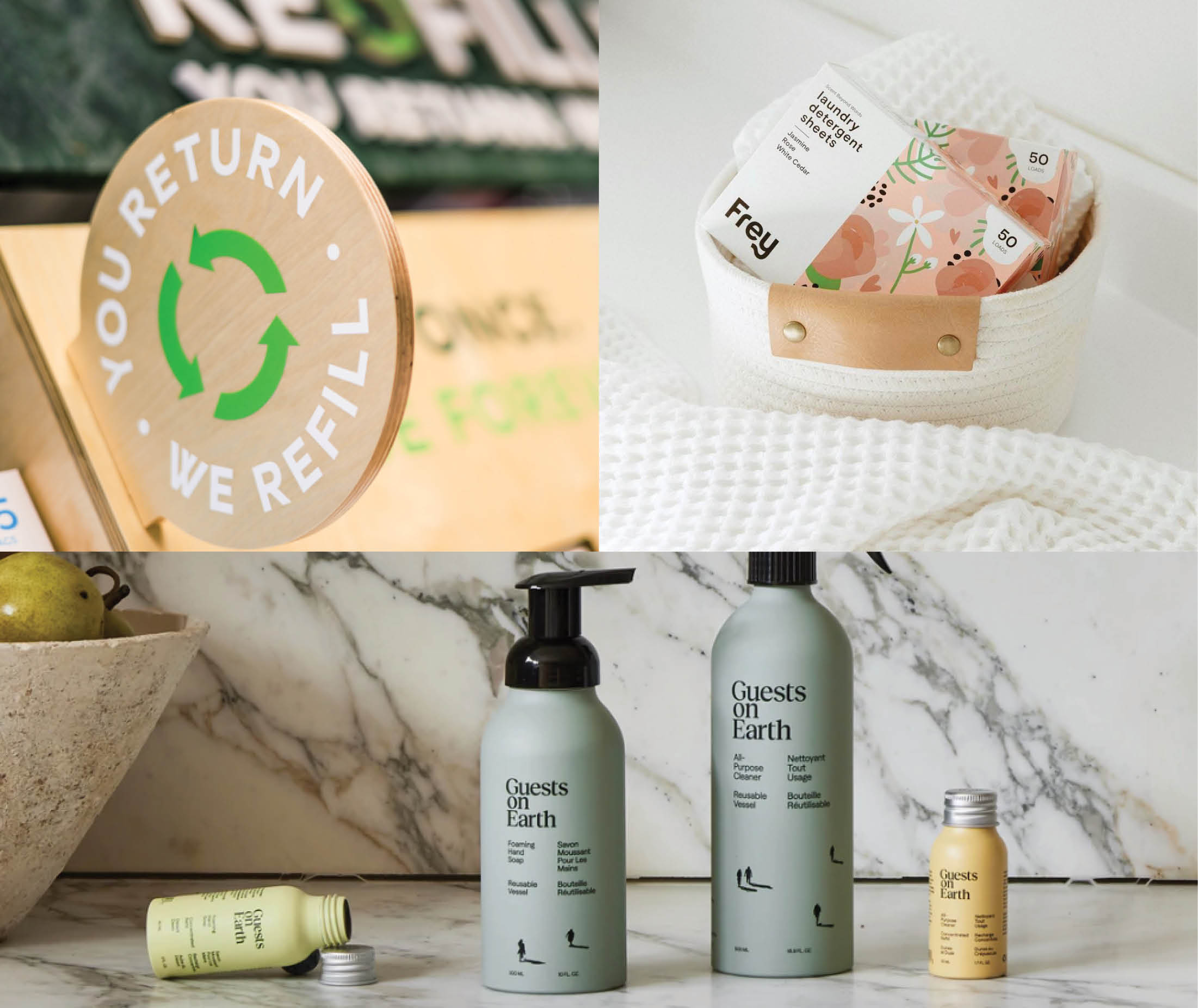
Home Care as Self-Care
The intersection of home care and self-care is a major emerging trend, as consumers look for a more holistic approach to wellbeing. Cleaning products are integrating wellness-inspired and sustainable formulas to appeal to health- and eco-conscious audiences.
Explore actionable recommendations on how health and wellness companies can tap into consumer demand for products that promote wellbeing in the home and for the body. Sustainable options with aromatherapy-inspired scents and skin-friendly ingredients will strongly resonate with target demographics seeking to transform cleaning into a mindful, therapeutic ritual.
Consumers today are taking a more holistic approach to wellbeing, seeking out products and experiences that benefit the mind, body and environment. This perspective is now extending into home care, as people look to bring harmony to their living space. Cleaning is being viewed not just as a chore, but as an opportunity to create a healthy habitat.
Our research has uncovered several key trends at the intersection of home care, self-care and sustainability:
– Home care as self-care: Consumers want cleaning routines to feel relaxing and therapeutic.
– Gentle and effective: Natural ingredients are preferred over harsh chemicals.
– Pet-friendly formulas: Products cater to pets’ needs with non-toxic ingredients.
– DIY recipes: Customizable, homemade options tap into mindful crafting.
– Long-term tools: Durable, reusable options replace disposables.
– Plastic-free swaps: Eco-friendly materials like bamboo offer plastic-free alternatives.
– Refillable systems: Reusable bottles paired with bulk refills cut waste.
– Compact concentrates: Waterless formulas in reusable bottles reduce emissions.
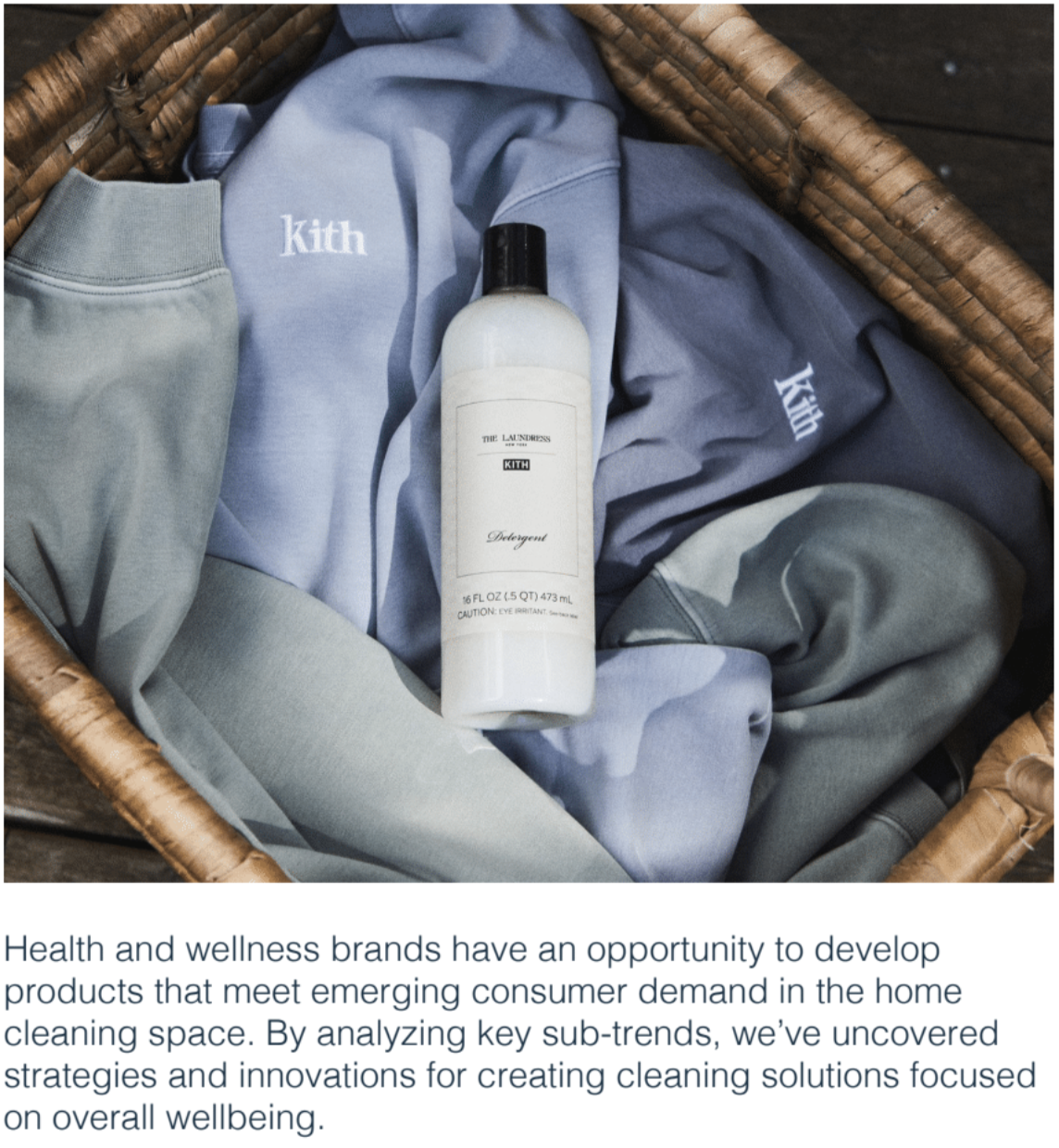
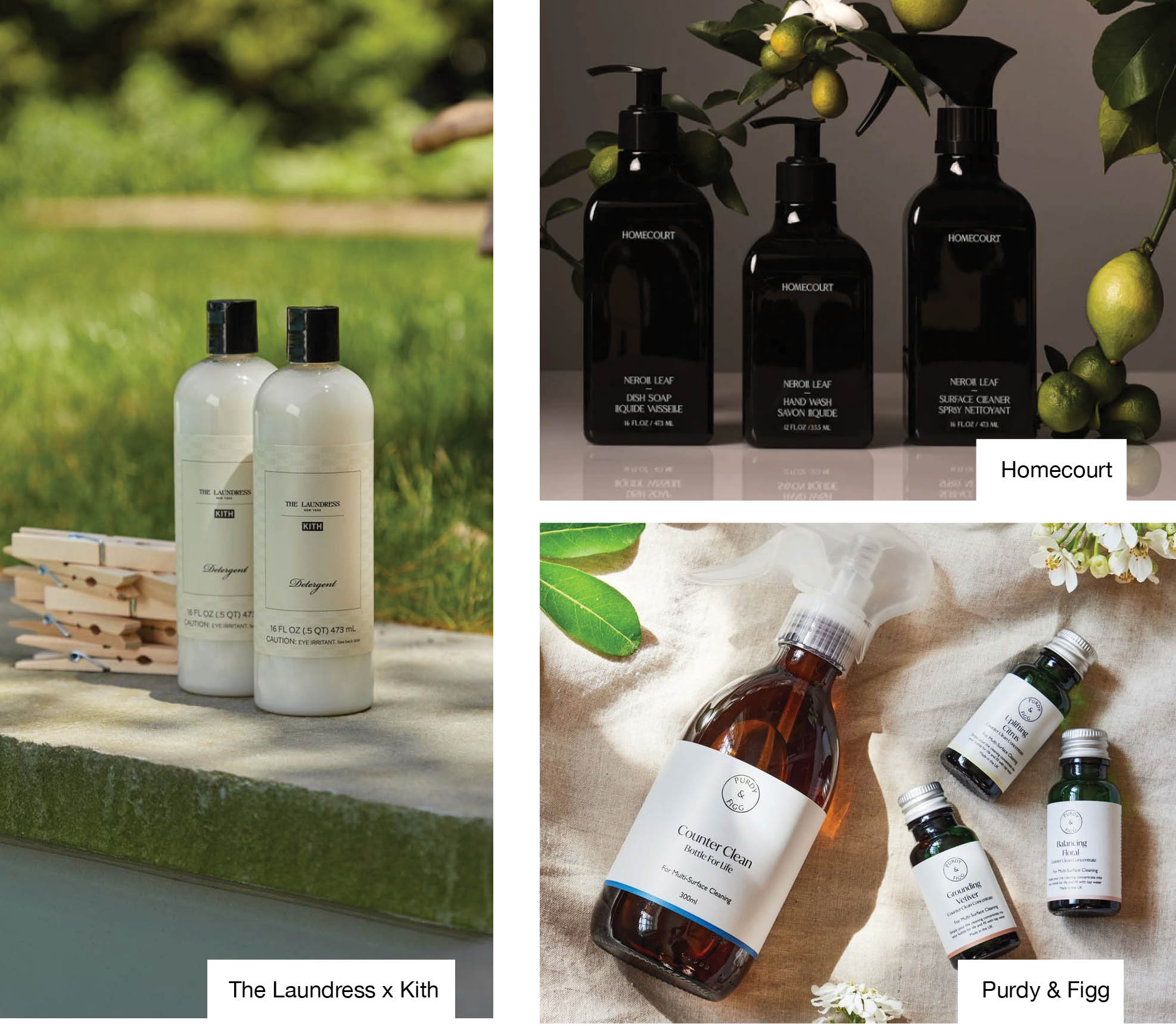
Sanctifying the Home Space
The barriers between self-care and home care are beginning to blend. Consumers want their living environment to provide an escape that supports their relaxation and eases stress.
Prominent health and wellness companies are expanding into home cleaning lines formulated with indulgent ingredients traditionally used in personal care routines. The focus is on creating products that turn mundane cleaning tasks into therapeutic rituals.
Soothing essential oil blends provide familiar aromatherapy benefits while eliminating odors and disinfecting. Probiotic-powered surface sprays bring the same skin-balancing properties to countertops and tables. Brands describe how these spa-inspired cleaners transform cleaning from a chore into a ritual of serenity and renewal.
To complete the luxury appeal, packaging mirrors the minimalist, artisanal aesthetic of premium cosmetics. Sleek designs feel sophisticated on display. Refill systems cater to the eco-conscious by reducing waste without sacrificing luxe quality.
The Rise of Gentle Cleaners
With home becoming a sanctuary, consumers want non-irritating cleaning products safe for regular use. This has fueled demand for hypoallergenic formulas with natural active ingredients.
Innovative brands are harnessing the effective cleaning power of solutions like vinegar, probiotics and plant-based enzymes. These formulas effectively eliminate bacteria and odors without using harsh synthetic chemicals. Branding calls out gentler approaches with labels like “non-toxic” and “hypoallergenic.”
These natural cleaners are designed to remain safe even if accidentally ingested, especially important for homes with kids and pets. Gentle on surfaces, skin, and airways, they provide peace of mind for families and indoor pet owners looking to maintain healthy spaces.
Brands that lead with education around the bacteria-fighting properties of natural solutions like vinegar and probiotics can convince consumers they can get potent cleaning without toxins. Clear communication of non-toxic ingredients and safety allows parents and pet owners to feel at ease using products frequently within the home sanctuary.
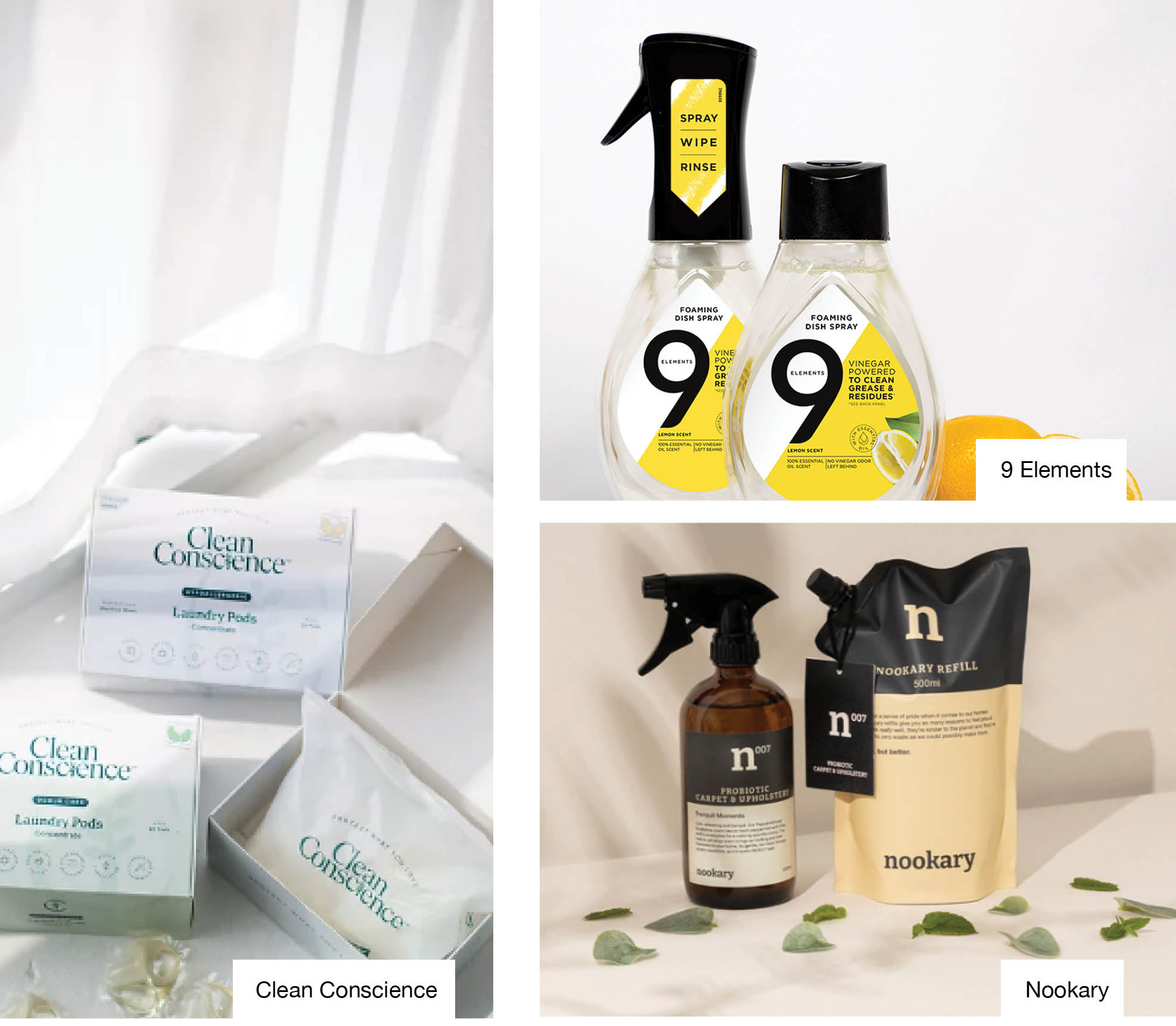
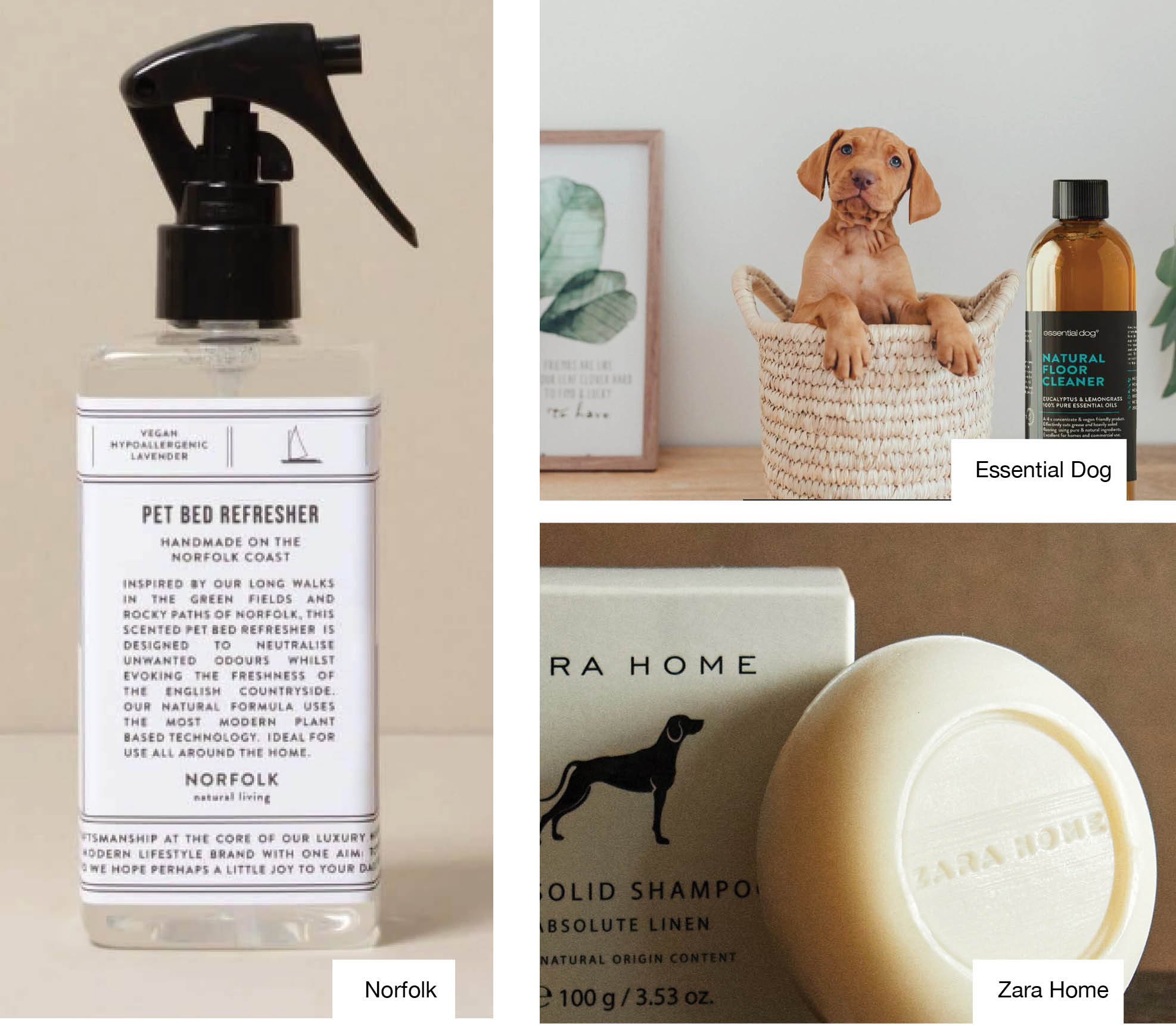
Keeping Pets in Mind
As pets become more integrated into families, consumers want to keep animals healthy when cleaning up messes. Pet owners are looking for non-toxic formulas tailored to delicate noses and paws.
New pet-specific cleaners harness natural enzymes from plants to lift stains and neutralize odors caused by bacteria. Botanically-derived ingredients like citrus extracts allow safe regular use even around pets and their accessories.
Soothing essential oil scents like lavender and geranium give products a light aromatic quality while also benefiting animal wellbeing. Calming formulas help reduce stress for anxious pets. Branding focuses on safe ingredients and suitability for regular use around furry friends.
Some pet cleaners also integrate supplements to nourish skin and coats when applied. Overall, the focus shifts to pet wellness – avoiding harsh chemicals that could irritate sensitive paws or noses. Education on safe, effective natural ingredients provides reassurance for discerning pet parents looking to clean while keeping their companions comfortable and healthy.
The Allure of DIY
Many consumers enjoy personalizing cleaning products through homemade recipes that allow them to control the ingredients and avoid harsh chemicals.
Brands are catering to this demand by curating DIY kits bundled with versatile natural ingredients like Castile soap, essential oils, and baking soda. People combine these basic elements to create their own custom solutions.
Online cleanfluencers further drive interest by sharing recipes tailored to different cleaning needs, from bathroom scrub to carpet deodorizer. This taps into the mindful satisfaction of making something with your own hands.
DIY cleaning kit brands design aesthetically pleasing reusable bottles and compostable labels to support low-waste efforts. The eco-friendly packaging allows consumers to repurpose containers for their homemade concoctions.
Positioning DIY cleaning as an enjoyable, creative endeavor transforms an everyday chore into an act of mindfulness and self-care through the ability to personalize and craft cleaning products.
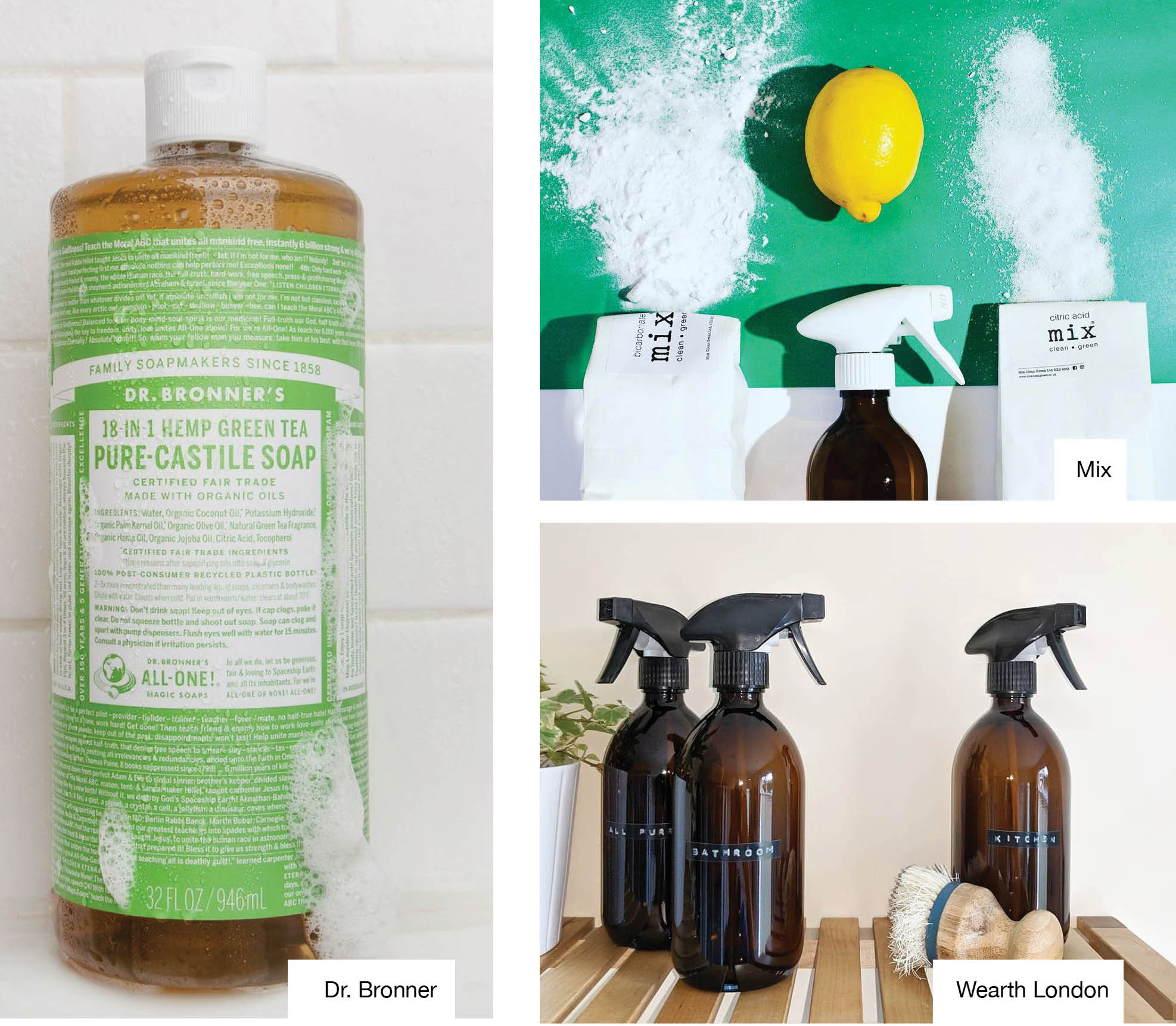
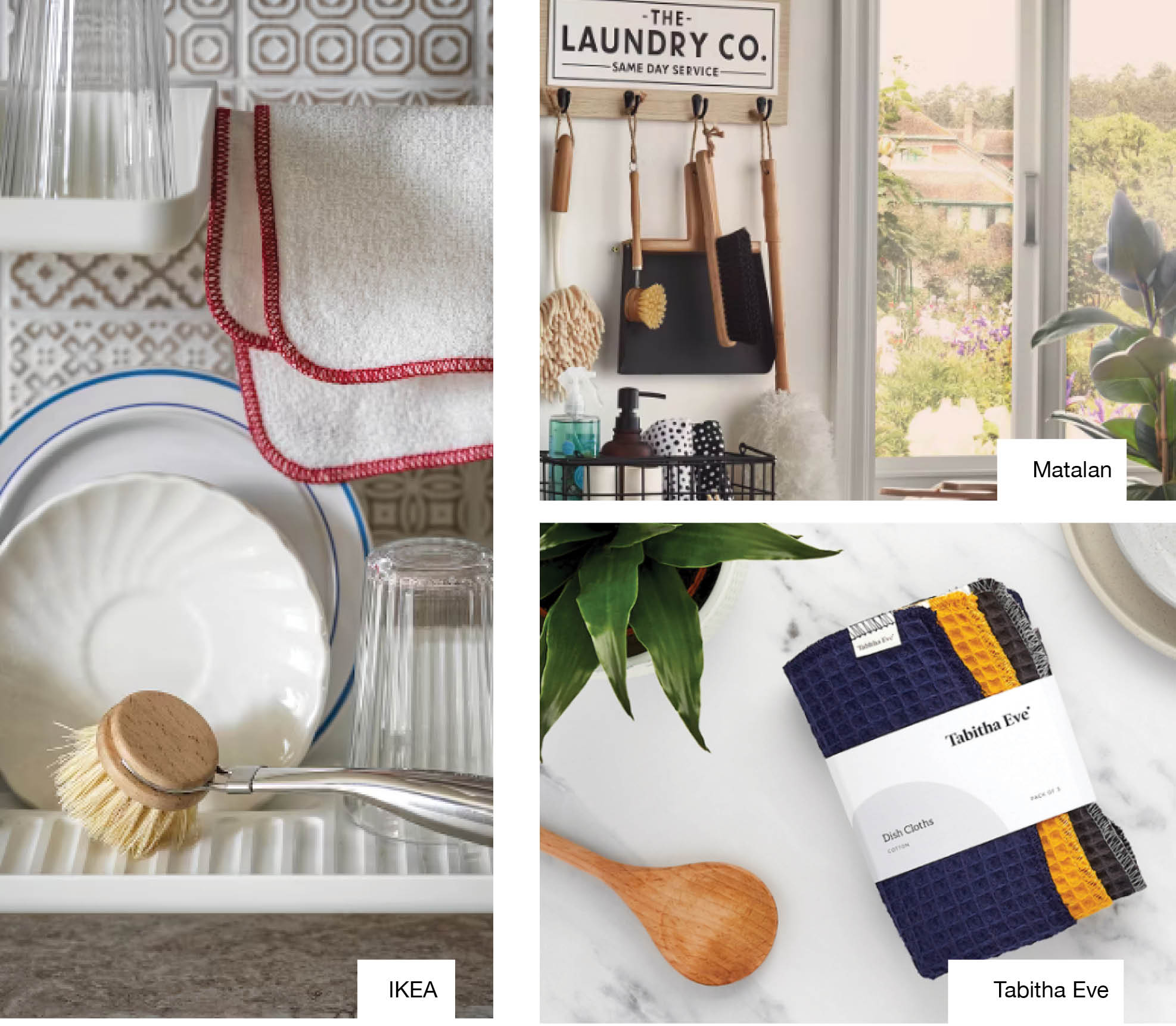
Investing in Heirloom Cleaning Tools
Consumers aim to avoid waste by choosing durable cleaning tools made of natural materials like wood and cotton that feel crafted to last.
Design takes inspiration from timeless vintage styles and charming farmhouse aesthetics. Silhouettes focus on sturdy wooden handles and natural fiber bristles that convey quality construction. Brands reimagine reusable classics like washcloths and steel scrub brushes as eco-friendly swaps for paper towels and disposable scrubbers.
Positioning cleaning tools as valued keepsakes satisfies demand for sustainable options while adding personality. Display-worthy designs help elevate cleaning rituals and make chores feel more enjoyable.
Brands source renewable materials like bamboo and coconut coir to create biodegradable tools. Touches like distressed wood and woven accents play up artisanal appeal. The focus is on creating enduring pieces consumers will use and enjoy for the long haul versus quickly discarding.
Seeking Sustainable Swaps
Consumers aim to avoid single-use plastics in cleaning by switching to renewable, biodegradable materials like cotton, cellulose, and bamboo.
Brands respond by reimagining traditionally disposable products using plastic-free materials. Organic cotton offers a sustainable alternative to conventional paper towels. Coconut fiber and loofah replace microplastic-laden sponges and scrubbers.
Eco-conscious consumers gravitate towards familiar cleaning staples reenvisioned with renewable materials, even at premium price points. Their values align with reducing plastic waste even through small swaps.
Brand messaging clearly communicates the plastic-free status of products. Compostable packaging reinforces sustainability commitments. By touting natural materials upfront, brands attract environmentally aware consumers seeking to make eco-friendly substitutions.
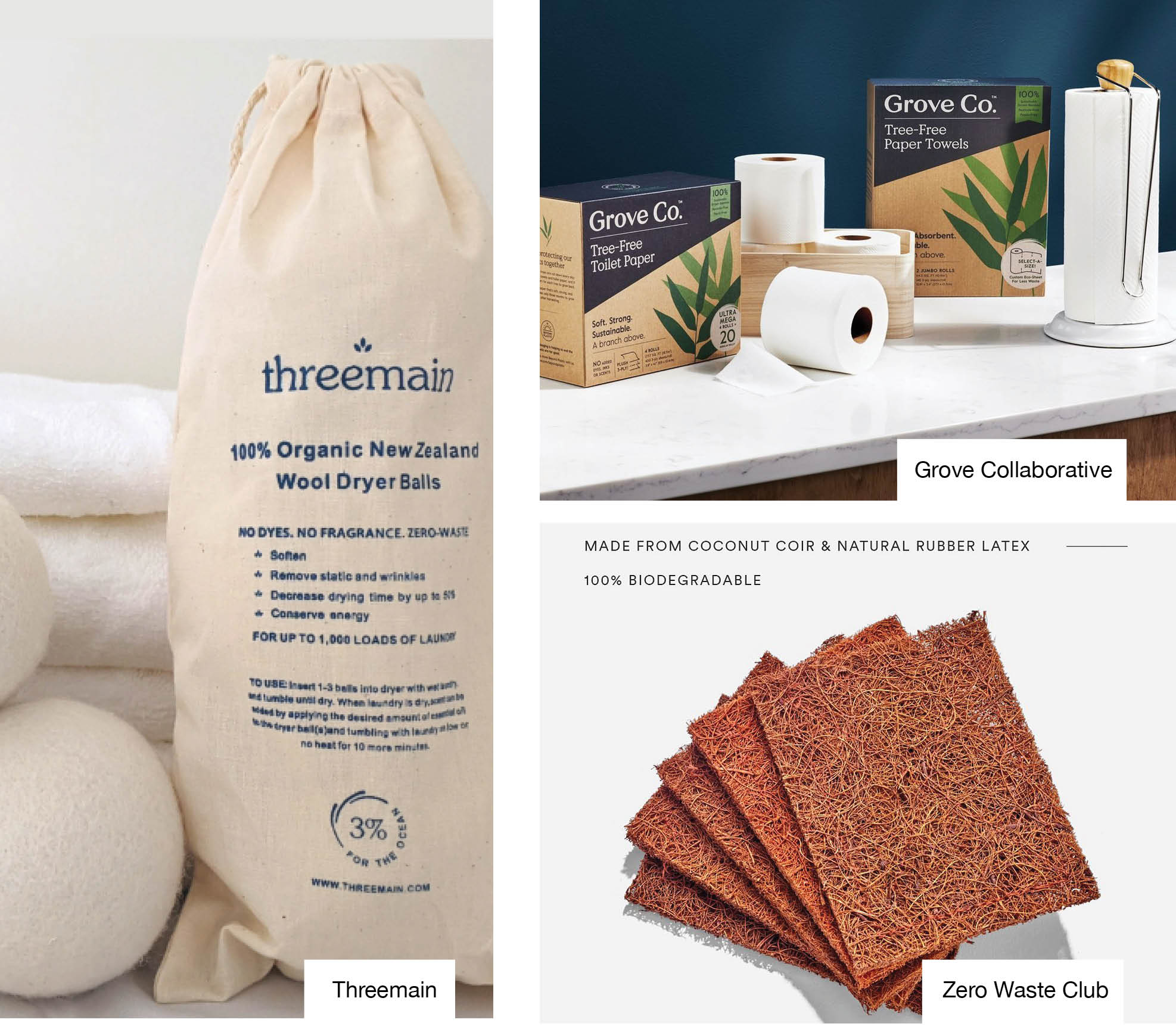
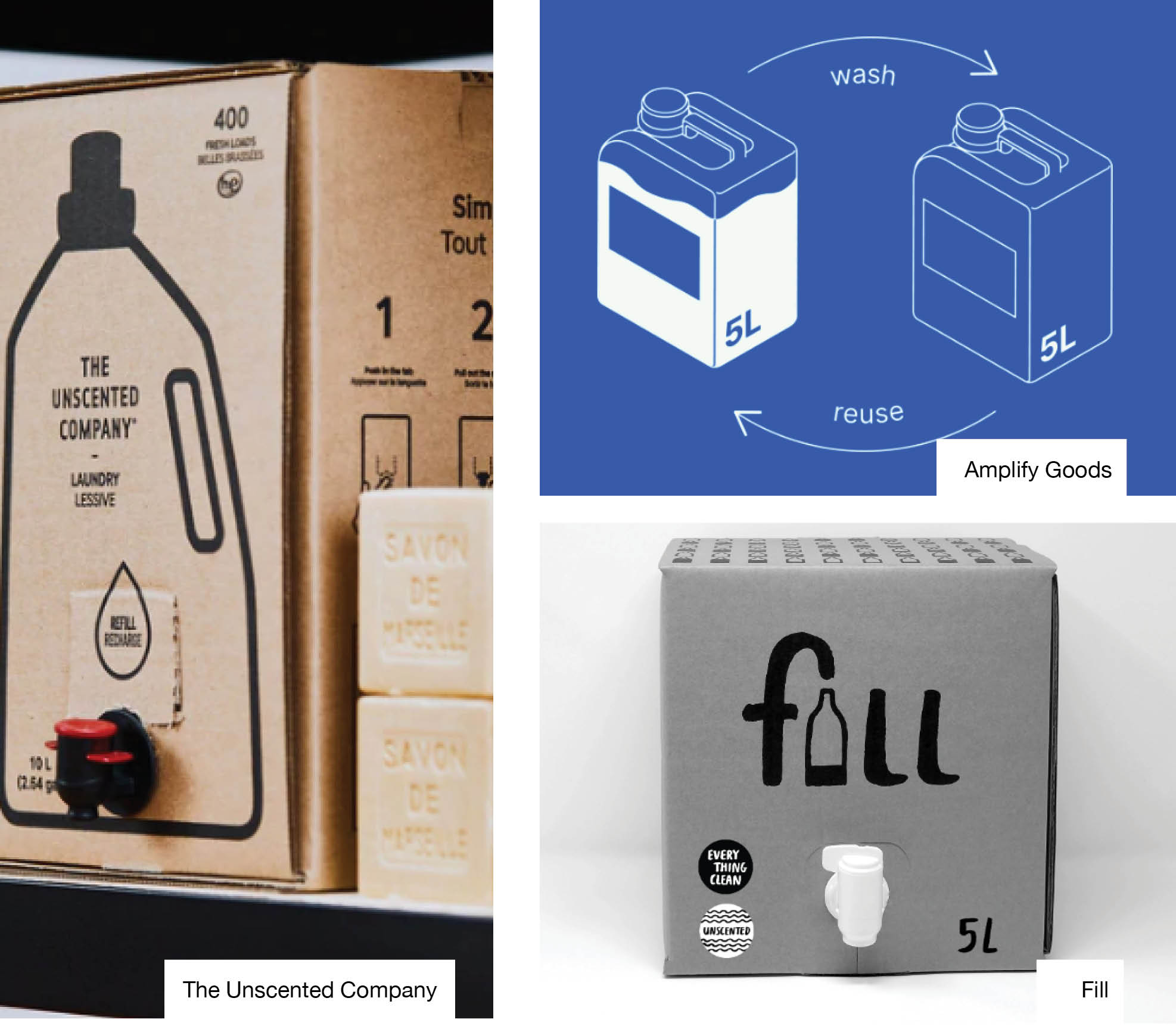
Reimagining Refillable Systems
Reusable packaging helps reduce waste from cleaning products as consumers return empties to be cleaned and refilled.
Other brands take a modern approach by offering pouches or tablet refills that easily reload into sleek reusable bottles. Bulk refill stations also provide low-waste shopping.
For added convenience, subscriptions deliver refills straight to your door on a schedule. Starter kits provide the bottles to get going with auto-delivery plans.
This refillable system appeals to eco-conscious consumers looking to sustainably reduce plastic waste. It also enables affordable access to premium cleaners by cutting single-use packaging.
Brands design eye-catching reusable bottles equipped for continual reloading. Tablet refills and bulk pouches make reloading easy for subscribers. Refill stations in stores add convenience. Marketing touts refills as an eco-friendly path to try high-end products while cutting plastic waste.
Concentrated Cleaners
Concentrated cleaning formulas with waterless tablets, powders, or sheets significantly reduce packaging and emissions.
These compact options contain active ingredients that pack a powerful punch in small doses. A little concentrate goes a long way. Portable sheets, tablets, and powders provide the same stellar cleaning as bulkier ready-to-use sprays in slimmer formats that require fewer refills.
Brands highlight naturally derived active ingredients like plant enzymes that work effectively in hyper-concentrated forms. The small-but-mighty formats mean lighter packages, resulting in lower emissions from transportation.
Concentrated cleaners appeal to eco-conscious consumers who gravitate towards products that reduce plastic waste. Tablets and powders provide easy use for travel or small spaces. Messaging focuses on the outsized impact of concentrates in slim, portable formats.
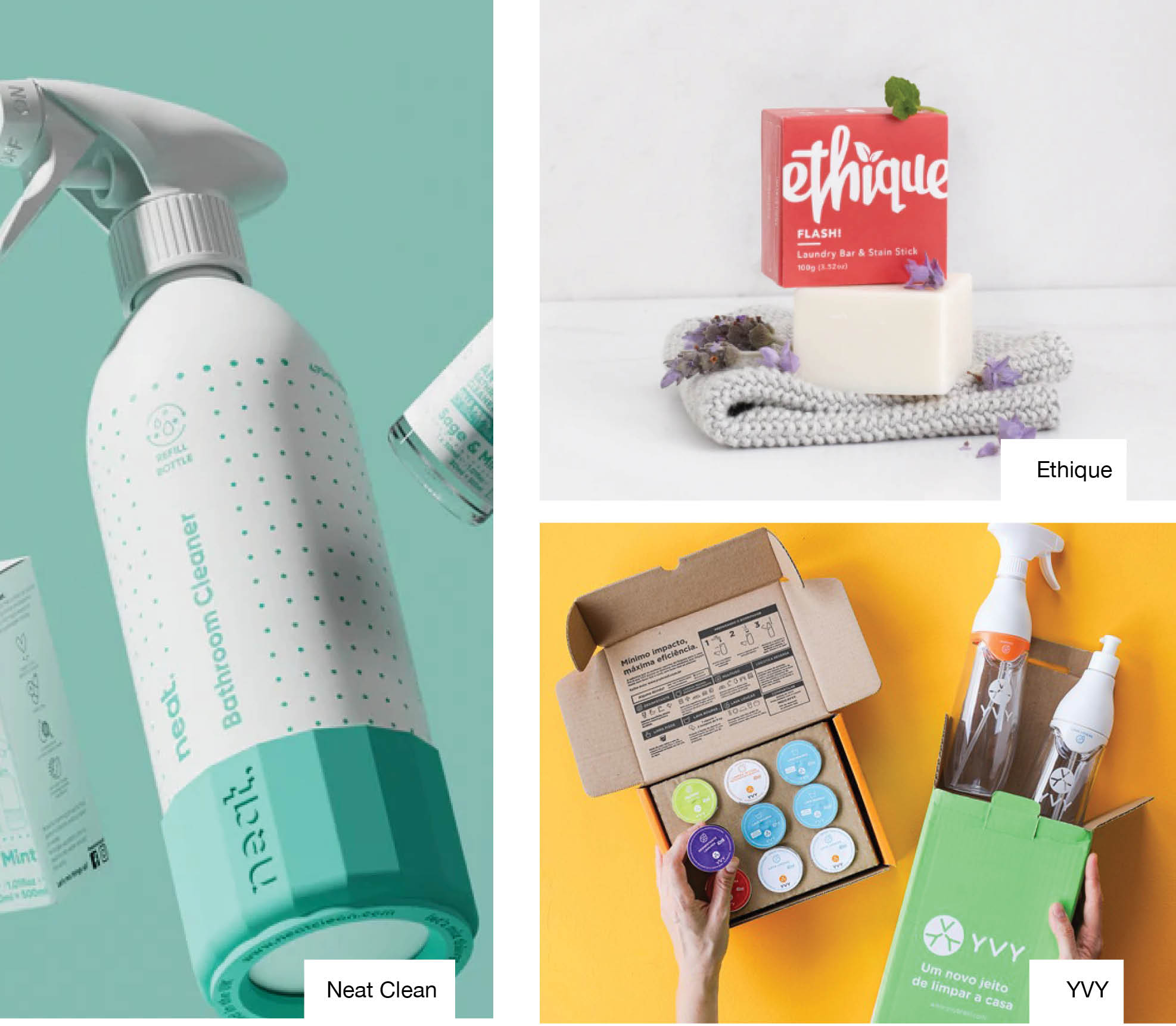

Today’s consumers are approaching home care with a wellness mindset, seeking products that benefit personal health along with the health of the planet. This represents a major opportunity for health and wellness brands to expand into sustainable cleaning formulated with natural self-care ingredients.
As leaders in wellbeing, health-focused brands are primed to develop solutions that reimagine cleaning as a therapeutic, meditative ritual. Gentle, effective formulas appeal to eco-conscious consumers looking for harmonic living.
We’re ready to bring our A-game to support forward-thinking brands creating experiences that wholly nurture wellbeing, from product to positioning to personality. Let’s brainstorm what’s next.
